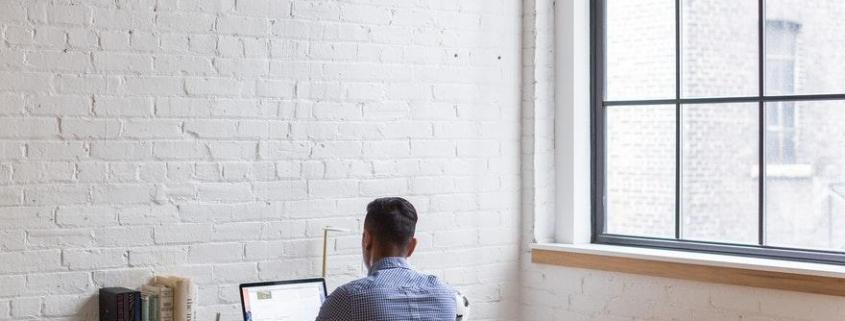What you can’t claim as working from home tax deductions
Since Covid hit, more and more employees started to work from home. As a result, working from home tax deductions have become hot topics.
It’s widely broadcasted that ATO’s introduced the 80cents per hour shortcut method to claim your working from home running costs. However there’s a catch to the 80 cents short cut method. Because that method is all inclusive, once you claim 80cents per hours, you can’t claim anything else as your working from home tax deductions. In most cases, you’d be better off to claim 52 cents per hour plus any other expenses you incurred for working from home.
There are countless articles online talking about what you can claim as working from home tax deductions in general. But today I really want to touch upon another maybe not so popular topic on what you can’t claim as working from home tax deductions. Because there are so many examples of inappropriate and sometimes funny claims, I think it’s important to know what we can and what we can’t claim.
Before we start, I’d like to quickly mention two common misunderstandings about the relationship between tax deductions and tax refund.
Common misunderstandings about the relationship between tax deductions and tax refund
First of all, we need to be clear that to claim tax deductions doesn’t mean that we’ll get 100% of the money spent from your tax return.
I did have people come to me for tax advise on the returns they’ve lodged themselves. They’ve claimed $3000+ tax deductions but only got $1000 something as tax return. Therefore, they believe the tax assessment was wrong. They claimed $3000 tax deductions, so they should get $3000 back as a tax refund right?
Unfortunately, whatever you spend and claim as a tax deduction, you’ll only get a percentage back. That percentage is your marginal tax rate. For example, if your marginal tax rate is 37%, you’ll only get 37% of your spending back as a tax refund. So be mindful for what you want to buy and claim as a tax deduction. Ask yourself, is it really necessary to buy it? If it’s something that you really need and helpful, by all means go ahead and buy it. If you want to buy it just for the purpose to reduce your tax, think twice. Because whatever you spend, you’ll only get a percentage back, not the full amount.
Another misunderstanding I’ve often encountered is that sometimes people think the more tax deductions they claim, the more refund they’ll get.
It can be true in most cases. However, for low income tax payers, excessive spending on tax deductions can be somewhat wasteful. I’ve seen many people only need a few hundreds of dollars worth of deductions to go below the tax free threshold. Instead, they’ve spent way more than what they need in hope of getting more tax refund. Sadly, a lot of expenditure incurred were not necessary because once you touch down the tax free threshold and you get all your tax paid back, there isn’t going to be anything more money coming to your tax return.
Now that I’ve got that bit out of the way, let’s get back to today’s topic.

What you can’t claim as working from home tax deductions
Rent for your home
Many people got very excited about working from home tax deductions. Because they’ve spent so much time working from home, instead of in the office, surely the rent paid on housing should be deductible, right? At lease part of it?
Unfortunate for PAYG (pay as you go) and PSI (personal service income) income earners, you can’t claim rent for you home as tax deductions. Even when you have to work from home due to lock downs.
Mortgage interest, rates and strata levy
Same concept as rent mentioned above, home owners can’t claim mortgage interest, rates and strata levies for their home because they’ve been working from home.
Toilet paper, tea and coffee
Toilet paper became hot property a few times due to Covid. And I’ve had a couple of clients who wanted to claim toilet paper as one of their tax deductions. Although those supplies are generally available when in the office, employees can’t claim costs for toilet paper together with tea and coffee while working from home.
Most household electronic appliances
Just yesterday, someone wanted to claim cost of buying their washing machine as a tax deduction. I’ve also had clients who sent me the invoices of their fridge, air conditioning and sofa etc to be included in their tax deduction. It’s understandable people want to minimize their taxes and get as much as refund as possible. But everything has to be done according to tax regulations. According to ATO tax payers can claim anything deemed to be personal. There are some cases personal items can be used for work purpose as well and only the work related percentage can be claimed as tax deduction. The work related percentage has be justifiable and substantiated by documentation and reasonable calculations.
Unreasonable high percentage of utility costs without substantiation
Just because we work from home a lot, it doesn’t mean that we can just 70-100% of electricity bills without any detailed calculation. You’ll need have backup calculation to support the percentage you used to claim utility costs deductions. Bear it in mind, if you’ve claimed 52cents or 80cents per hour running cost, you can’t claim utility costs as tax deductions on top of it. Like wise, if you claim the actual utility costs in your tax return, you can’t also use the cents per hour method to claim working from home tax deductions.
Pure personal expenditures
Taxpayers can’t claim pure personal expenditures such as massages as tax deductions. The fact you have to get massage because sitting on uncomfortable dining chair working from home caused you backpain doesn’t provide enough ground to claim the cost of massage sessions as a tax deduction. By the way, this example is based on a true story.
Expenses have been reimbursed by employers
Consider this, you bought something for work purpose and subsequently your employer reimbursed you the full amount. Can you still claim this expenditure as your tax deduction in your tax return. Common sense told me no. Not surprisingly the answers is also NO by ATO. But in reality a number of people do claim expenses reimbursed by employers. Some are innocently not knowing, some knew but claim it nevertheless.
Full amount of work equipment costs over $300
For anything under $300 we bought out of our own pocket for work purpose, we can claim immediate deduction. Some examples are printers, keyboards and monitors under $300. For all work equipment costs over $300, we have to put them in the depreciation schedule. And claim the work related depreciation costs for the relevant period. For example, you bought a laptop on 20 June for $2000. You bought this one especially for work from home purpose. It happens that you hear from the radio ad, now is a good time to buy it because you can claim this as your tax deduction. Therefore, you can claim the whole $2000 in your tax return right? Wrong.
I’m so surprised to see so many people buying expensive computer gears for work right by the end of each financial year. The truth is, you can only claim the depreciation cost from the date of purchase. As a result, your tax deduction in that financial year is very minimal. Far less than the few thousand dollars you spent.
Working from home also prompt a lot people go out buying expensive custom made desks that costs thousands. Similarly, you can only claim the deprecation cost from the date it’s fully installed for working from home purpose. Even worse, if you claim the desk depreciation, you can’t claim the cents per hour running cost any more. In most cases, people end up getting less tax deductions claiming the desk depreciation.
In conclusion
Tax time can be exciting or daunting for us. One thing to remember is that working from home doesn’t guarantee that you can get a lot more tax deductions.
There are however, wise ways to save tax for everyone or as property investors specifically. Whatever you do, it’s better to try to understand tax regulations and avoid getting tax penalties because of some innocent mistakes.









Leave a Reply
Want to join the discussion?Feel free to contribute!